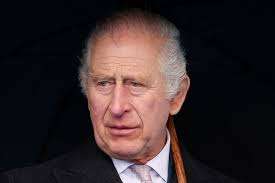
Buckingham Palace have confirmed that King Charles III is fully supportive of research being undertaken currently into the royal family’s historical slavery links, during the late 17th and 18th centuries.
The independent probing of information is a project being conducted by the University of Manchester alongside Historic Royal Palaces, who are the charity that manages some of the UK’s unoccupied royal palaces.
The Royal Household have agreed to allow access to its vast collections and historical records, which will include all of the Royal Archives.
The study began in October 2022 and is not expected to be completed until late 2026 and was prompted by documents published in the Guardian newspaper, which had been unearthed by an American historian, claiming that King William III had shares in Royal African Company, the transatlantic slaving firm, and took money from them to be used on Kensington Palace.
Charles has spoken about his “profound regret” on the issue of slavery several times, making one lengthy speech to Commonwealth leaders in Rwanda last year.
Funds thought to be used to build Kensington Palace
The document in question dates back to 1689 and was found by Dr Brooke Newman, a Virginia-based historian, in a royal archive and shows a transfer of £1,000 worth of shares from the governor of the Royal African Company, Edward Colston, to William of Orange. This was at the very same time that he was having Kensington Palace built, which ultimately became his home and is the present day official London residence of the Prince and Princess of Wales.
Research welcome but still not near enough
Dr Newman was also encouraging in his words towards the work, but qualified his remarks by insisting that although the King’s support is an interesting development, as far as he was concerned, it “does not go anywhere near far enough”. In his opinion it will take a team of researchers and forensic accountants, fully resourced to get deep enough into the heart of the centuries-long story.
Charles trying to say the right things
Charles touched on the subject last year when he addressed the Commonwealth heads of Government reception in Rwanda. He said that he could not describe “the depths of his personal sorrow” at the suffering caused by the slave trade. He added that he continues to deepen his own understanding of slavery’s “enduring impact”. He recognised the importance of acknowledging the “wrongs that had shaped our past.”
King previously spoke about the subject in Ghana
The King had previously broached the subject on a trip to Ghana in 2018, describing it as an “indelible stain” on Britain’s history. The then prince was visibly moved when visiting Osu Castle, where he learned that it was the place where slaves were held prior to being transported across the Atlantic.
He made a speech back then recognising the injustices the country had suffered and acknowledged that the UK had played its part in “the most painful chapter of Ghana’s relations with the nations of Europe.”
UK right at the heart of the shocking trade
It was actually Portuguese traders who launched the transatlantic slave trade at the end of the fifteenth century, but it eventually passed into Dutch and then English hands and by the beginning of the eighteenth century, there were literally tens of thousands of Africans being shipped to a life of slavery and toil on plantations across the modern-day United States, the Caribbean and South American nations such as Brazil, producing various crops, but mainly sugar, coffee and tobacco, for consumption back in Europe.
Basically all it took was much sought after manufactured goods delivered by the European traders to their West African counterparts, who in return would release people they had captured as payment. By the second half of the seventeenth century Britain was at the forefront and the demand for labour had grown to such an extent, that places such as Barbados and other British West Indian islands were receiving an average of 6,700 slaves per year, chained and shackled whilst shipped over from Africa aboard their ships.
Abolition predictably fought by plantation owners
As the nineteenth Century came into view, the first calls for full abolition of slavery were being made in Britain. Naturally those who profited from the gruesome trade, namely the plantation owners, were keen to do everything to keep the practice going. These were often the youngest sons of British aristocrats, who took the route across the Atlantic to find their own fortunes, after their fathers’ wealth was passed down to the first child of the family.
Wilberforce’s Slave Trade Act
By the 1790’s the anti-slavery movement was gathering pace led by independent MP William Wilberforce, who continually introduced motions in parliament for its abolition. Finally, in 1807, Wilberforce drew up the Slave Trade Act which finally was to abolished the shocking industry in Britain.
Sadly though, it did not free those who were already slaves, and it would be 1833 before a subsequent act was passed, which gave freedom to all slaves in the British empire.
Ancestors of former PM named and shamed
Amongst many well-known Brits who have ancestors that have strong links to the slave trade is former prime minister David Cameron. A first cousin of his, General Sir James Duff, received a pay out of £4,101, which is the equivalent to more than £3 million present day ($4.7 million dollars), for the 202 Africans he enslaved on the Grange Sugar Estate in Jamaica.
It is also recorded that the nineteenth Century businessman William Jolliffe, who is relative of Mr Cameron’s wife, Samantha, was also a beneficiary of slavery, receiving £4,000 in government compensation for being made to free 164 slaves in St Lucia, once abolition came into effect.
William has previously made similar speech
It was only 12 months ago that Prince William had made a similar speech to his father at a dinner in Jamaica when he spoke of his “profound sorrow” over slavery, calling it “abhorrent” and acknowledging that it is something the should never have happened” and will “forever stain our history”.
Edward Colston statue thrown into Bristol harbour
This has all come into the spotlight after The Guardian newspaper, whose owners, The Scott Trust, recently apologised after independent research revealed its own historic links to slavery, brought the association between the Royal African Company and King William III to everybody’s attention.
The company’s governor Edward Colston was the man at the centre of things, and responsible for the transfer of around 80,000 slaves from Africa to the Caribbean and America. Around 20,000 of them, including around 3,000 or more children, died during the journeys, but this did not stop the wealthy merchant and philanthropist becoming immortalised in a statue in his home city of Bristol, after he used some of his financial gains from the slave trade to build schools and almshouses.
A plaque on the statue read: “Erected by citizens of Bristol as a memorial of one of the most virtuous and wise sons of their city.” However, in the wake of the Black Lives Matter protests in 2020, sparked by the death of George Floyd in the US, the statue of Colston overlooking the harbour, was torn down and unceremoniously dumped into the water.
Caricom urge King Charles to go further
Buckingham Palace has said it is cooperating fully with independent study, but campaigners, including representatives of Caribbean countries where enslaved people were forced to work on British-owned plantations for generations, continue to be critical of the Royals for expressing only generalised sorrow, and not explicitly acknowledging the monarchy’s role.
Eric Phillips, the vice-chair of the Caricom Reparation Commission, which represents 20 Caribbean countries where European powers enslaved people to work on plantations, welcomed King Charles III’s support for the research, but said he should go further and publicly recognise the involvement of past monarchs. Mr Phillips said. “King Charles should extol the British government to engage Caricom through a special commission to fully appreciate the impacts and legacies of the slave trade and to find practical solutions, to address reparatory justice.”
Three years before research complete
The in-depth research is actually the PhD project of a historian, Camilla de Koning and is being co-supervised by HRP and Dr Edmond Smith, of Manchester University and funded by the Arts and Humanities Research Council, and is expected to be completed by 2026.













0 Comments